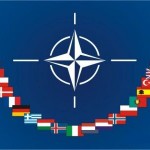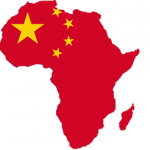Zero Problems – Enhancing Security and Preventing Conflict in Turkey’s Evolving Partnerships with the European Union, United States, Middle East, Russia and Eurasia
{5,673 Words. 20 Pages. 61 References}
FREE PREVIEW
TABLE OF CONTENTS (TOC)
I. Section One – Europe and the Balkans
A. European Union (EU) Accession
B. Cooperation with NATO
C. Cyprus and Greece Conflict
II. Section Two – The Middle East
A. Israel
B. Iran
C. Syria
D. Iraq
E. Foreign Policy Perspective
III. Section Three – Eurasia and the Caucasus
A. Russia
B. Armenia and Azerbaijan
IV. Turkish Cooperation with the United States
V. Turkey’s Domestic Issues
A. The Kurdish Problem
B. Political Trends, Islam and Social Transformation
C. Comparisons with China
VI. Conclusions: Conflict Prevention Through Strategic Counterbalancing
The views and opinions expressed in this paper are completely my own and do not represent the views or opinions of the Department of Defense (DoD), the Department of the Navy (DON) or any of the Armed Forces.
Section One – Europe and the Balkans (*not the complete section*)
European Union (EU) Accession. Ahmet Davutoğlu, Turkey’s Minister of Foreign Affairs, says that EU Accession is on an “irreversible course” that will produce enhanced peace, stability, indivisibility of security, economic interdependence, cultural harmony and convergent interests in a region that includes the Balkans, the Caucasus, Europe and the Middle East (Davutoğlu:EU 12-17). The interests of the EU and Turkey do not, however, always converge harmoniously, and accession progress has slowed considerably since Brussels opened membership talks in 2005 with major regional security implications (Alessandri 28-29).
The European Commission on Enlargement (EC) has noted in its annual progress report that the Justice and Development Party (AKP), which came to power in 2002, has failed to “notably address the Kurdish issue (1)” “undermined freedom of the press (1),” failed to sufficiently curtail human rights abuses (2) and protect minorities (3), made “no progress towards normalization of bilateral relations with Cyprus” (3), allowed relations with Israel to “significantly deteriorate” (8), and did not ratify protocols to “normalize relations with Armenia” (8). This doesn’t sound like an irreversible course.
Alessandri notes that the AKP has made “Europeanization … more peripheral” to their goals, only instituting some minor reforms designed to preserve its own “power and self-perpetuation” at the expense of true European integration and resolving the Kurdish issue which could explode at any time (25-27). Turkish society has followed the AKP lead. “In 2004, 73% of Turks said that joining the EU would be a good thing. In 2010, just 38% of Turks said so” (Transatlantic). EU leaders also seem to losing interest. “German Chancellor Angela Merkel and French President Nicolas Sarkozy have been at the forefront of opposing full Turkish membership in the EU,” advocating a ‘preferred partnership’ instead (McNamara et. al. 13). If one looks at trade relations, the EU and Turkey already have a preferred partnership.
“Europe is home to some 2.7 million Turks and supplies 56 percent of Turkey’s tourists” (ICG:208 15). The EU27 accounts for 75% of Turkish FDI inflows in 2008, 48.3 % of exports, and a 41.7% share of total Turkish trade, although total trade with the EU27 was traditionally in the 56-58% range prior to 2008 (Vira). Trade with the Near and Middle East has picked up the slack, doubling in the last ten years and reaching about 20 percent of the overall total volume (Barysch:2010 5). Ample trade may not be enough to guarantee accession or deter conflict.
Only 12 of the required 33 chapters for admission have been opened with another 12 currently blocked by EU member states (U.S. State Dept.). Eight of the blocked chapters relate to Turkey’s refusal to honor the ‘Ankara Protocol’ related to extending an EU Customs Union to Cyprus and opening ports and airports to Greek Cypriot ships and planes respectively (Barysch:2010 3). Greece has also frequently opposed EU-Turkish relations, while the EU has not accepted Turkey into the Euro-Mediterranean Free Trade Area (EMFTA) or European Defense Agency, both of which seem discriminatory (McNamara et. al. 14-15). Despite these speed bumps, EU-Turkish trade has flourished.
To purchase entire essay, please click this Ganxy link
Like this:
Like Loading...





Leave a Reply